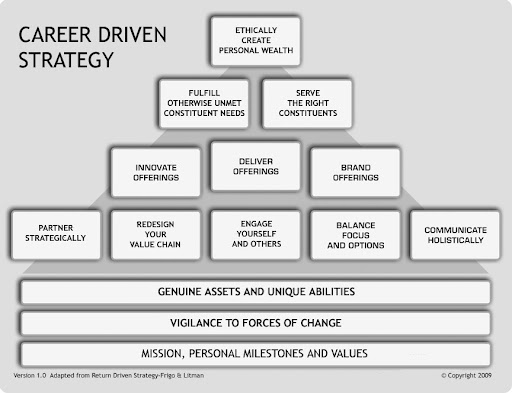Jim Simons had a "system." The good news? You don't have to be a Math whiz to put it into practice!
| From the desk of Miles Everson: Happy midweek, everyone! I hope you’re all having a great day so far. For today’s article, I’m thrilled to share with you a useful insight about work and life from my friend and colleague, Professor Joel Litman. I believe this is something we all have to keep in mind, especially as individual professionals. |
Are you ready?
Continue reading below to learn more about these principles.
Jim Simons had a "system." The good news? You don't have to be a Math whiz to put it into practice!
Even the greatest minds in finance didn't start as experts in the field…
Some of the most successful investors in history built their fortunes by applying knowledge from entirely different disciplines.
Their secret wasn’t just intelligence but also their ability to identify patterns, take calculated risks, and surround themselves with the right people.
Professor Joel Litman , Chairman and CEO of Valens Research and Chief Investment Officer of Altimetry Financial Research, recently spoke about one such legendary investor:
Jim Simons.
While widely known as a pioneer of quantitative investing, Simons’ principles extended far beyond algorithms and data models.
His core beliefs about success, discipline, and adaptability offer valuable lessons for investors today.
Before revolutionizing the financial world, Simons worked as a government codebreaker in the 1960s. His expertise in pattern recognition became the foundation of his investment strategy.
Interestingly, Simons never studied finance formally or traded at a high level before launching his first fund, Monemetrics, in 1978.
The fund experienced mixed results, largely because his early models required frequent manual adjustments.
However, in 1988, he made a crucial breakthrough with the Medallion Fund, which would go on to achieve an astounding 66% average annual return over the following decades.
Despite his heavy reliance on sophisticated mathematical models, Simons still respected fundamental investing principles.
Professor Litman highlighted how Simons’ approach wasn’t purely about numbers—it was guided by five core principles that investors, regardless of their background, can apply to their own strategies.
- Be guided by beauty.
To Simons, investing wasn’t just about numbers but also about creating something elegant and efficient.
When the Medallion Fund posted losses in 1989, he didn’t simply tweak his model; he shut down trading for six months to rebuild it from the ground up.
His goal was to refine it into something truly “beautiful,” meaning it functioned seamlessly and efficiently. He never had another losing year after that.
Here’s the thing: This principle isn’t limited to quantitative investing. Professor Litman pointed out that many of the most successful companies have built “beautiful” business models.
Nvidia (NVDA), for example, created CUDA, the industry-leading programming platform, and ensured that its chips were the only ones compatible with it.
This elegant structure gave Nvidia a MASSIVE competitive advantage, proving that beauty in business translates to long-term success. - Do something new. Don’t run with the pack.
The greatest investors don’t follow the herd. If they did, everyone would achieve the same results. Instead, they look where others aren’t.
Simons applied his background in mathematics and cryptography to investing at a time when most relied on fundamental analysis. His willingness to diverge from conventional wisdom led to unparalleled success.
Professor Litman stressed that this mindset is crucial for investors today.
After all, markets reward those who recognize opportunities before they become mainstream.
That’s because true success comes from having the foresight and conviction to take a different path when the data supports it. - Surround yourself with the smartest people you can find.
Simons knew he couldn’t succeed alone. So, he actively recruited top-tier talent—mathematicians, physicists, and computer scientists—to refine his models.
He wasn’t looking for traditional finance professionals; he wanted problem solvers who could think differently.
This principle applies beyond investment teams.
Investors should evaluate the leadership of the companies they invest in just as much as they analyze financial statements.
Apple (AAPL) is a perfect example of this.
Its commitment to hiring the best creative minds has driven over 1,000% growth in its stock price in the past decade alone.
The bottom line?
A strong management team can be a company’s most valuable asset. - Don’t give up easily.
No investor is immune to setbacks.
Simons endured years of trial and error before his breakthrough. The key was his persistence.
He continuously refined his approach, learning from failures rather than letting them define him.
Professor Litman emphasized that investors often give up too quickly on good ideas. However, if research supports an investment thesis, patience is required.
Besides, the market doesn’t always price stocks efficiently in the short term. Over time, great businesses tend to rise in value. - Hope for good luck.
Even the most well-researched investments involve an element of luck.
Simons understood that no strategy guarantees success every time. So, while he hoped for favorable market conditions, he always had an exit strategy in case things didn’t go as planned.
Professor Litman advised investors to adopt the same mindset too.
He states timing isn’t always perfect, and even strong investments can underperform due to unforeseen events.
The key is to respect the role of luck, prepare for downturns, and remain adaptable.
Indeed, Simons left an indelible mark on the financial world.
While his mathematical approach may not be replicable for most investors, his principles are universally applicable.
… and by embracing these five core ideas, investors can improve their decision-making and build resilient, high-performing portfolios.
As Professor Litman pointed out, true success in investing isn’t just about intelligence; it’s also about discipline , creativity , and the willingness to think differently.
Hope you’ve found this week’s insights interesting and helpful.
| EXCITING NEWS AHEAD The world of work has shifted, and there’s no going back. The barriers to entry have never been lower for talented professionals to work independently, and today’s massive external workforce is hardly a pandemic-produced fad. Business owners can only survive in the new work landscape by partnering with this deep talent pool. With decades of experience in both small-business entrepreneurship and executive management at PwC, I truly believe that the future of work is independent. With that, I’m happy to share with you that my book, co-authored with Walter Scott Lamb, is now available on Amazon! Free Birds Revolution: The Future of Work & The Independent Mind This new bestseller is an essential read for both independent professionals and corporate executives. Here, we provide educational and practical guides to unpack the ever-growing workforce and offer you crucial ways to become a client of choice. Click on the link above to order your copy. Let this bestselling book help you future-proof your career and organization in the new world of work. |
Stay tuned for next Wednesday’s The Independent Investor!
Paying attention to the markets may feel like second nature, especially if you’re keeping a close look on how your money gets put to work and if there are any opportunities that many have yet to catch on.
Learn more about the hidden benefits of gratitude in investing in next week’s article!

Miles Everson
CEO of MBO Partners and former Global Advisory and Consulting CEO at PwC, Everson has worked with many of the world's largest and most prominent organizations, specializing in executive management. He helps companies balance growth, reduce risk, maximize return, and excel in strategic business priorities.
He is a sought-after public speaker and contributor and has been a case study for success from Harvard Business School.
Everson is a Certified Public Accountant, a member of the American Institute of Certified Public Accountants and Minnesota Society of Certified Public Accountants. He graduated from St. Cloud State University with a B.S. in Accounting.



